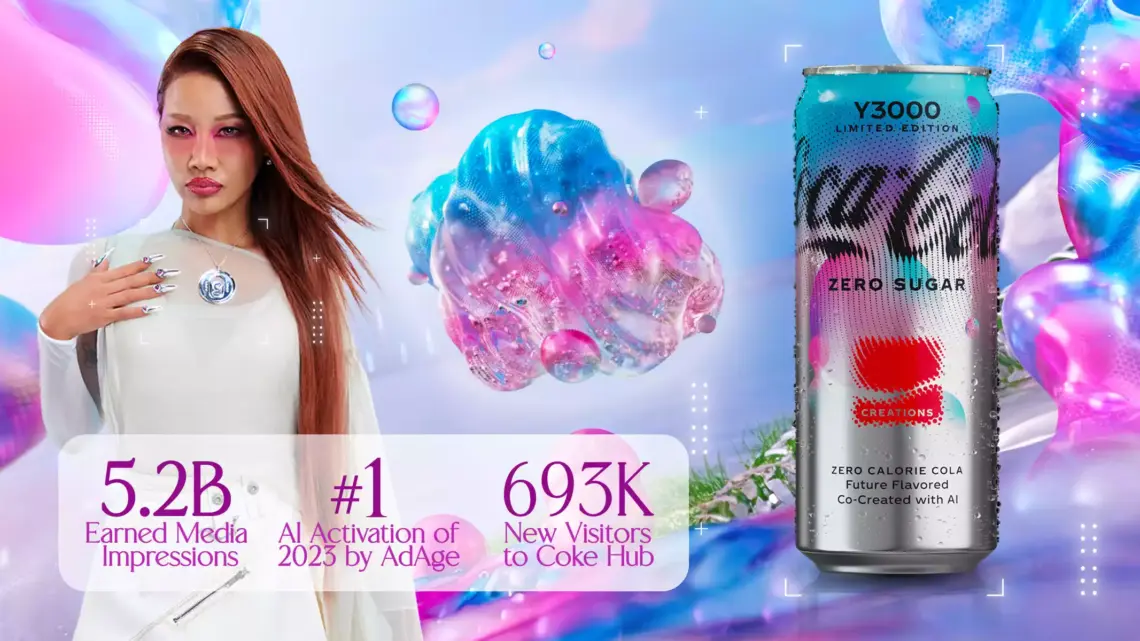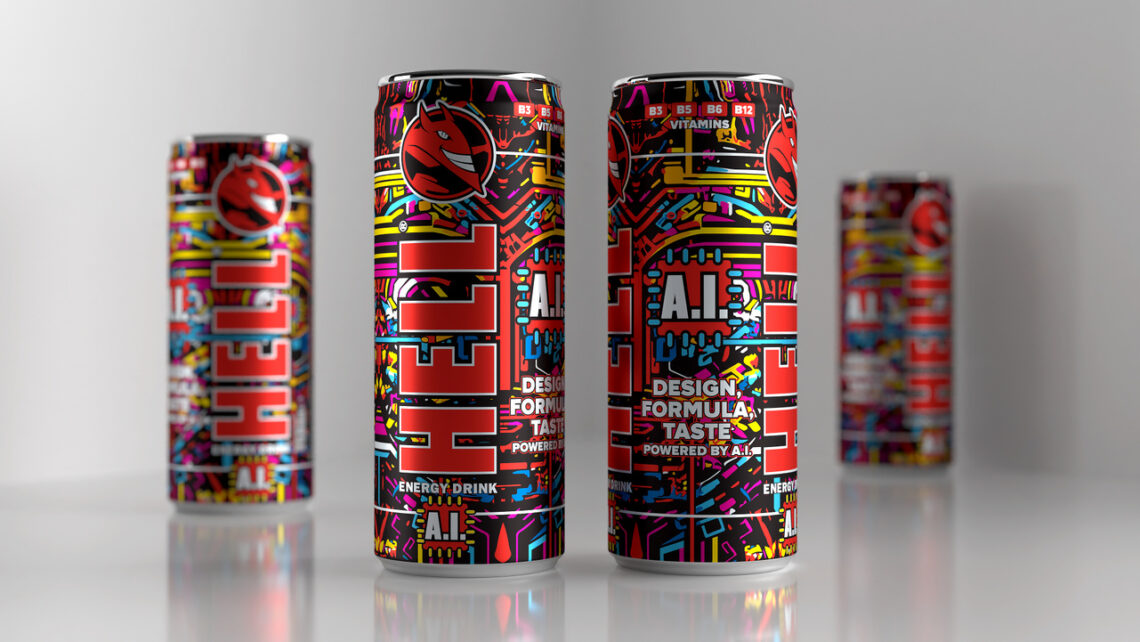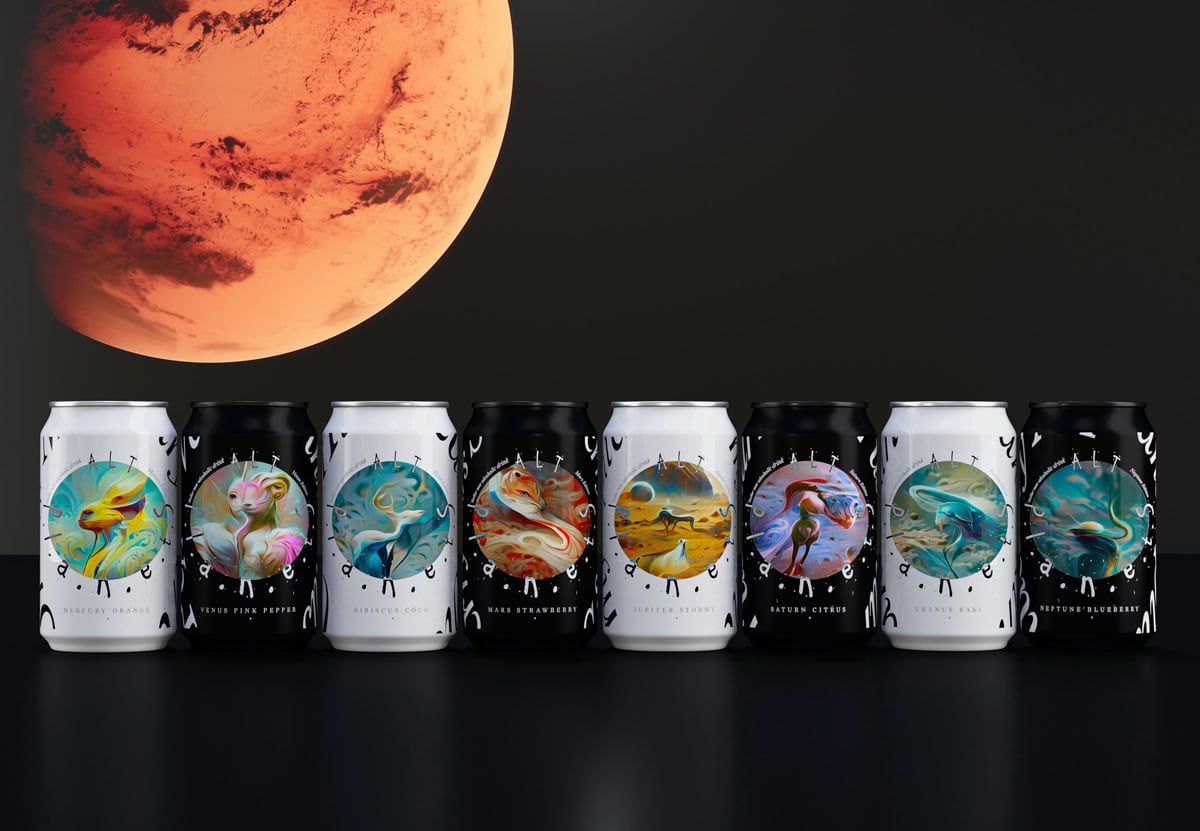AI agents and beverage brands in 2026: a digital revolution in the industry
TLDR - What you need to know about AI agents in the beverage industry :
Markets and investments : The AI market in beverages reaches $10.8 billion in 2024 and will exceed $50 billion by 2030 (annual growth of 29.6%). Coca-Cola has invested $1.1 billion with Microsoft, Pernod Ricard is ranked best European company in AI human capital.
Products created by AI Coca-Cola Y3000 (first futuristic flavor co-created with AI), Vivi Nova (Swiss soda developed in 2 days by ChatGPT), HELL A.I. (energy drink tested by electronic noses and mouths), Beck's Autonomous (first 100% AI beer), Mackmyra Intelligens whisky (70 million combinations analyzed).
Measurable gains These include: +200% e-commerce sales with CRM IA, +60% filtration volume (AB InBev), +30% sales productivity, forecast accuracy from 70% to 90%, development cycles reduced from 1-2 years to a few weeks.
Key tools Specialized CRM (Ohanafy, Lilypad), chatbots (Diageo Simi, AB InBev Bevi), AI sommeliers (VinoVoss, Preferabli), packaging tools (Midjourney, Packify.ai), compliance applications (EvinAssist for the Evin law).
Challenges : 83% of consumers want to know if AI is being used, risks of algorithmic bias, legal gray areas on intellectual property, impact on creative employment (a third of American illustrators are said to have lost their jobs).
Winning strategy AI augments human expertise rather than replacing it. AI-generated, human-curated« approach. 71% of leaders believe the road to market is already digitized.
- TLDR - What you need to know about AI agents in the beverage industry :
- The rise of AI agents: an overview of the market in early 2025
- How AI is actually transforming major brands
- Beverages designed entirely by artificial intelligence
- Concrete benefits of AI agents for brands
- AI revolutionizes sales and CRM for beverage brands
- Chatbots and virtual assistants in the beverage industry
- Specialized applications, tools and media for the beverage industry
- AI transforms beverage packaging and design
- Ethical challenges and the limits of artificial intelligence
- Winning strategies and future market projections
- Conclusion: an irreversible transformation
The Rise of AI Agents: Market Overview Early 2025
Artificial intelligence is radically transforming the beverage, wine and spirits industry. The market for AI in food and beverages reached 10.8 billion in 2024 and should exceed 50 billion by 2030, with an annual growth rate of 29.6%. Coca-Cola has invested $1.1 billion in its AI partnership with Microsoft, while 76% consumers believe that AI will significantly shape their alcohol purchases over the next five years. This profound transformation will affect all aspects of the industry: product creation, sales, customer service and marketing.
How AI is actually transforming major brands
Industry giants have massively embraced artificial intelligence technologies. Coca-Cola uses Azure OpenAI across its entire value chain, from demand forecasting to personalized marketing. The results are spectacular: 12% organic sales growth in 2024, on-time delivery rates of 99%, and 65% of media spend now allocated to AI-driven digital channels.
Diageo, owner of Johnnie Walker and Smirnoff, has developed its proprietary platform FlavorPrint to analyze consumers« taste preferences. Its »What's Your Whisky" tool uses 11 questions to create a personalized flavor profile and recommend suitable single malts. In November 2024, the brand launched FlavorPrintConnect, a multi-sensory tasting experience combining physical kits and AI-enhanced digital masterclasses.

AB InBev has created the Beer Garage, a technological innovation center in Silicon Valley. The brand has optimized its filtration process with Google Cloud, achieving an increase of 60% of beer volume per cycle filtration. Its Bevi chatbot in Brazil handled over 205,000 queries, generating a 159% increase in customer engagement in four months.
Pernod Ricard, ranked Europe's best AI human capital company in the AlixPartners 2024 report, is rolling out four key digital programs including D-STAR, an AI recommendation system that guides daily store visits and product prioritization for its sales teams in over 70 countries.
Beverages designed entirely by artificial intelligence
The emergence of products co-created with AI marks a historic turning point for the industry. Coca-Cola Y3000, launched in September 2023, represents the first futuristic flavor co-created with artificial intelligence. The process took place in two phases: first, data was collected on global taste preferences, analyzing the emotions, aspirations, colors and flavors associated with the future, and then processed by Coca-Cola's AI systems to develop flavor profiles. The result offers fruity notes of cherry, strawberry and raspberry, with hints of vanilla and caramel.
Vivi Nova, an artisanal Swiss soda created by Vivi Kola in collaboration with Migros, illustrates the speed of development made possible by AI. ChatGPT developed the recipe in just two days A vegan drink made from water, camerisier berry juice (3%), lime juice, ginger and chicory powder. Midjourney and Unreal Engine generated the futuristic label design. The final product contains just 3.5% of cane sugar and claims antioxidant and digestive properties.
HELL A.I., a Hungarian energy drink launched in July 2023 in over 60 countries, was developed by AI systems using electronic noses and mouths for digital tasting. The AI analyzed energy drink market data, created three flavor variations, then selected the winner: «Tutti-frutti & Berry-blast». The recipe, including 32mg/100ml of caffeine, B vitamins and ginkgo biloba, is stored on a single computer in Hungary with a backup copy in Switzerland.
Beck's Autonomous from AB InBev (April 2023) remains the first example of a beer created entirely by AI. For the brand's 150th anniversary, AI designed the recipe (pilsner at 5% alcohol), the name, the logo, the hybrid glass-aluminum packaging and the entire marketing campaign. Only 450 limited-edition cans were produced.
In the world of spirits, whisky Mackmyra Intelligens (Sweden) analyzed 70 million different combinations from 75 existing recipes, sales data and customer reviews. Master Blender Angela D'Orazio selected recipe number 36, creating a single malt «generated by AI, but curated by humans».
Concrete benefits of AI agents for brands
AI agents bring measurable gains at every level of the value chain. At product development, AI reduces creation cycles from 1-2 years to potentially a few weeks. Nestlé has transformed its process: NesGPT compresses product ideation from six months to six weeks.
For the quality control, computer vision detects microscopic defects with an accuracy of over 95%. Defect rates fall below 2% within six months of implementation. AB InBev uses SenseAI for real-time quality control during fermentation.
Visit predictive maintenance generates an 8 to 12% improvement in overall equipment efficiency. With unplanned downtime costing over $50,000 per hour, the return on investment is rapid. McKinsey estimates that AI reduces equipment downtime by 30 to 50%, and extends equipment life by 20 to 40%.
Visit supply chain, Coca-Cola Bottlers Japan improved forecast accuracy from 70% to nearly 90% by integrating point-of-sale data, weather and purchase histories. Nestlé reduced inventory from 14 to 20% by switching from a human 80% forecast to an AI-driven 80%.
AI revolutionizes sales and CRM for beverage brands
Specialized, intelligent CRM systems are transforming business management in the industry. Lilypad CRM, designed specifically for alcohol, integrates depletion data and tracks market trends for wines in bag-in-box, cans and cocktails. Ohanafy, built on Salesforce, offers a 360° view of customer relationships, including purchasing habits and frequency of visits, with automatic notifications when a customer has not been visited.

The platform DRINKS PAIR for alcohol e-commerce documents an increase of more than 200% sales over 90 days, an increase of 175% in session conversions and 78% in average revenue per session. AI analyzes color palettes, fonts and design elements on wine labels to predict consumers' emotional response.
Modern Data Company offers a sales gas pedal for wine and spirits suppliers, with predictive churn models, account scoring and upsell/cross-sell recommendations. Documented results show up to 30% increase in sales productivity and 20% in churn reduction, with deployment in 4-8 weeks.
At Heineken Mexico, AI has transformed retailing: 80% of orders are now placed online, and systems identify which bars to target for promotional activities to prevent customer churn.
Chatbots and virtual assistants in the beverage industry
Customer service automation is enjoying massive adoption. Diageo deploys several assistants: Simi, a personal bartender on Facebook Messenger offering 2,000+ cocktail recipes with Johnnie Walker, Smirnoff, Tanqueray and Captain Morgan; and the Johnnie Walker digital education program on Amazon Alexa offering guided tastings.
Heineken uses a GenAI chatbot on its KIM (Knowledge and Insights Management) platform containing over 8,000 consumer data files. Employees ask questions like «What do European millennials think of alcohol-free beers?» and receive instant answers.
The sommeliers IA are multiplying: VinoVoss (BetterAI) offers a virtual sommelier trained by world-renowned sommeliers, using Machine Learning, NLP and Computer Vision for personalized recommendations. Aivin supports professional sommeliers by integrating with CRM and inventory systems. Preferabli has a database of 500 to 800 characteristics per wine, built up with the help of Masters of Wine.
Performance is measurable: chatbots typically automate 60 to 90% of incoming requests, They reduce response times by 70% and improve conversion rates by up to 40%.
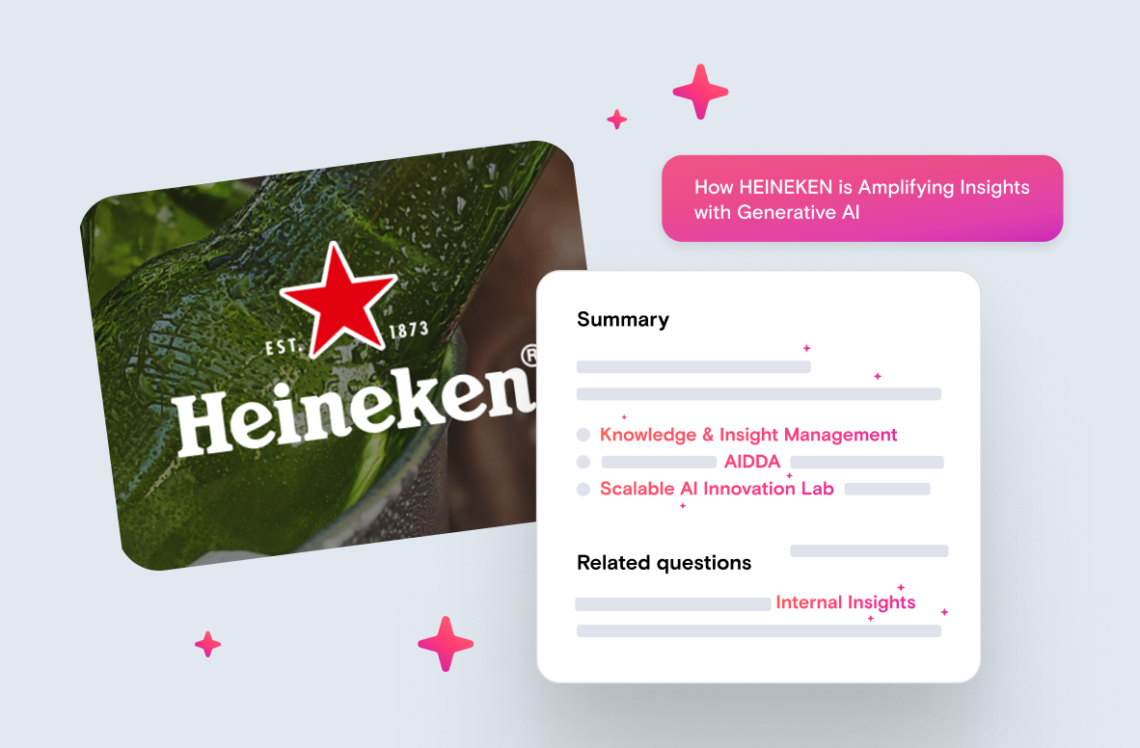
Specialized applications, tools and media for the beverage industry
EvinAssist (loievin.fr) is an operational AI tool dedicated to Loi Evin compliance in France. Developed by Studio Blackthorns, It analyzes advertising content (text, images, social network posts) and provides a compliance score based on current legislation and case law. The tool, which is still under development, will suggest creative alternatives that comply with the law, and will be able to generate publications that comply with the Loi Evin. It is aimed at alcohol brands, breweries, distilleries, wineries and communications agencies. Don't hesitate to contact the communications agency to find out more about this tool.

SuperPotion (superpotion.fr), produced by the same studio, is a French-language digital media and podcast specializing in the communication, branding and marketing of beverages (beer, wine, spirits), offering trend analysis and advanced digital strategies on the subject.
The vibe coding, a term coined by Andrej Karpathy (co-founder of OpenAI) in February 2025, democratizes application creation. This approach makes it possible to describe a project in natural language so that the AI can generate the code automatically. Google AI Studio offers a native vibe coding experience with Gemini, enabling applications to be created and deployed at the click of a button. Lovable (a Swedish startup that raised $15 million) generates a React frontend, backend and Supabase database from a text description. N8N automates workflows with over 500 application integrations, enabling brands to create WhatsApp assistants for orders or quality monitoring systems.
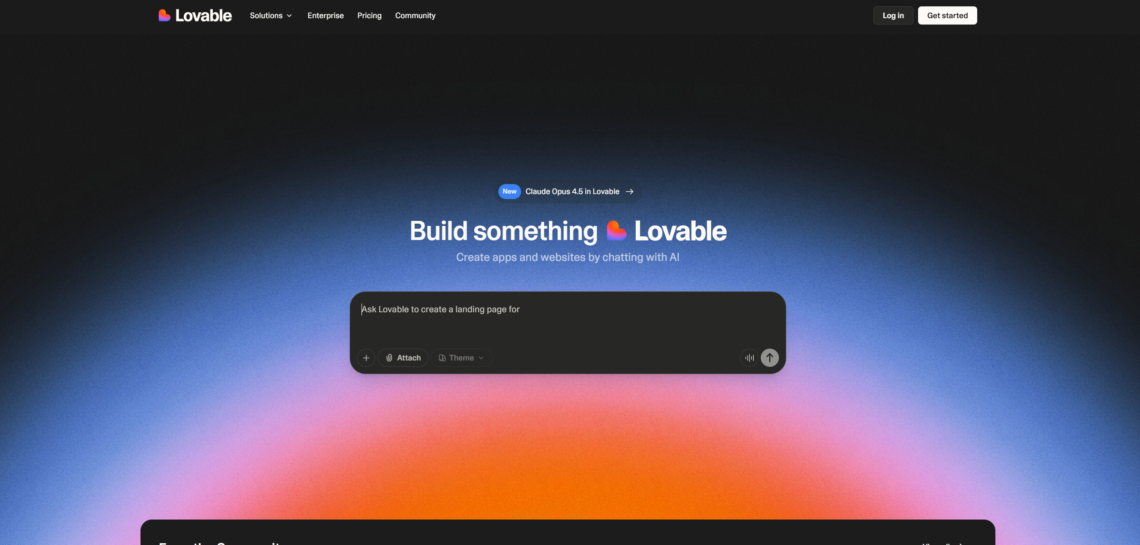
AI transforms beverage packaging and design
Generative tools are revolutionizing packaging design. Midjourney allows create beverage packaging mockups in seconds, experimenting with styles, colors and typography. One company has created over 300 packaging designs in just two days. Nano-Banana Pro, Adobe Firefly, Flux, Seedream or Recraft offer similar capabilities with their own specific features.
Specialized platforms are emerging: Packify.ai offers conversational design, 3D mockups, print-ready PDFs and FDA-compliant label generation; ; Pacdora offers a library of over 6,000 3D mockups and a cut-out generator.

3D prototyping integrates AI to reduce design cycles. iC3D creates 3D virtual mockups in real time with a claimed reduction of 80% design cycle time. Shapr3D is used by PepsiCo, Coca-Cola and Nongfu Spring for iPad modeling with real-time customer collaboration.
Nutella Unica used AI with dozens of patterns to create 7 million unique labels, each one different. In March 2025, Diageo launched its first bottle personalization experience powered by generative AI.
L’predictive eye tracking optimizes packaging performance. The Bonduelle Salad case study revealed poor brand visibility; after redesign guided by eye tracking, brand observation increased from 28% to 44%, generating a improved sales of 15%. Tobii Research estimates that packaging adjustments can increase sales by up to 40%.
Ethical challenges and the limits of artificial intelligence
AI adoption raises major concerns. An October 2024 survey (UK and US, 1,040 consumers) reveals that 83% believe that companies should declare the following on labels whether AI has been used in design or manufacturing. Only 42% have a positive perception of AI specifically designing food products.
The algorithmic biases are a real risk. «Because it can almost mimic a human, AI can actually bring bias,» warns Kellanova's Ramesh Kollepara. Pricing algorithms could inflate prices during niches where low-income consumers shop. Continuous monitoring and tuning of generative systems is essential.
The hallucinations AI (a convincing presentation of misinformation) require verified data sources. Intellectual property remains a legal grey area: generators use images circulating on the internet, and no definitive answer exists on copyright infringement. Platforms like Packify.ai claim training on royalty-free data, but the onus is on the user to verify originality.
The impact on’job is nuanced. AI is expected to affect nearly 40% of global jobs according to the IMF, but the World Economic Forum predicts that only 27% of companies using AI actually replace worker tasks. AI reshapes roles rather than eliminates them: 80% of the workforce can delegate 10-20% of their workload to AI. Wages rise twice as fast in sectors exposed to AI.

Winning strategies and future market projections
Successful brands combine technology with human expertise. Mackmyra whisky exemplifies the «AI-generated, human-curated» approach. Pernod Ricard is a role model: ranked Europe's best company in AI human capital, it benefited from a top-down mandate from CEO Alexandre Ricard to invest in AI, leading to a Harvard Business School case study in May 2024.
Digitizing sales is no longer optional: 71% industry leaders believe the road to market is already digitized, and 77% of retailers use AI-informed advanced order picking.
The market projections are unanimously optimistic. According to various sources, AI in food and beverages will reach between $50 and $85 billion by 2030. Computer vision holds 42.5% market share in 2024, with robotics growing at 42.2% annually. Asia-Pacific accounts for 34.1% of revenues, and is the fastest-growing region at 41.5%.
Emerging trends include robotic bartenders with conversational AI (Cecilia.ai), predictive food safety, and smart packaging with IoT sensors for real-time monitoring. Nearly 60% of global food manufacturers plan to increase their AI investments over the next three years.
Conclusion: an irreversible transformation
Artificial intelligence is fundamentally redefining the beverage, wine and spirits industry. The figures speak for themselves: massive investments by leaders (1.1 billion for Coca-Cola), documented productivity gains (30% in commercial, 60% in filtration), and double-digit growth projections for the AI market. Products co-created with AI such as Coca-Cola Y3000 or Beck's Autonomous demonstrate unprecedented creative capabilities.
AI agents don't replace human expertise, but enhance it considerably. AI sommeliers complement the Master of Wine, chatbots free up teams for higher value-added interactions, and vibe coding tools enable non-technical professionals to create their own business applications.
The challenges remain significant: consumer demands for transparency, risks of algorithmic bias, legal gray areas on intellectual property. But brands that are slow to adopt these technologies risk losing a decisive competitive edge in a market where AI is becoming the standard rather than the exception.
FAQ : AI agents and beverage brands


